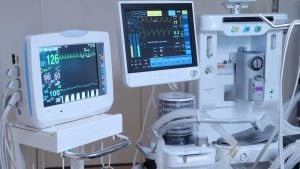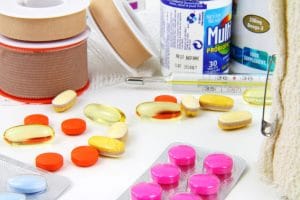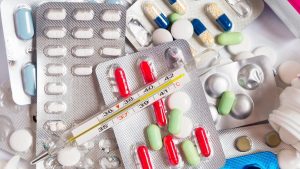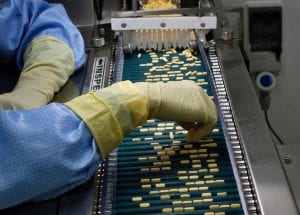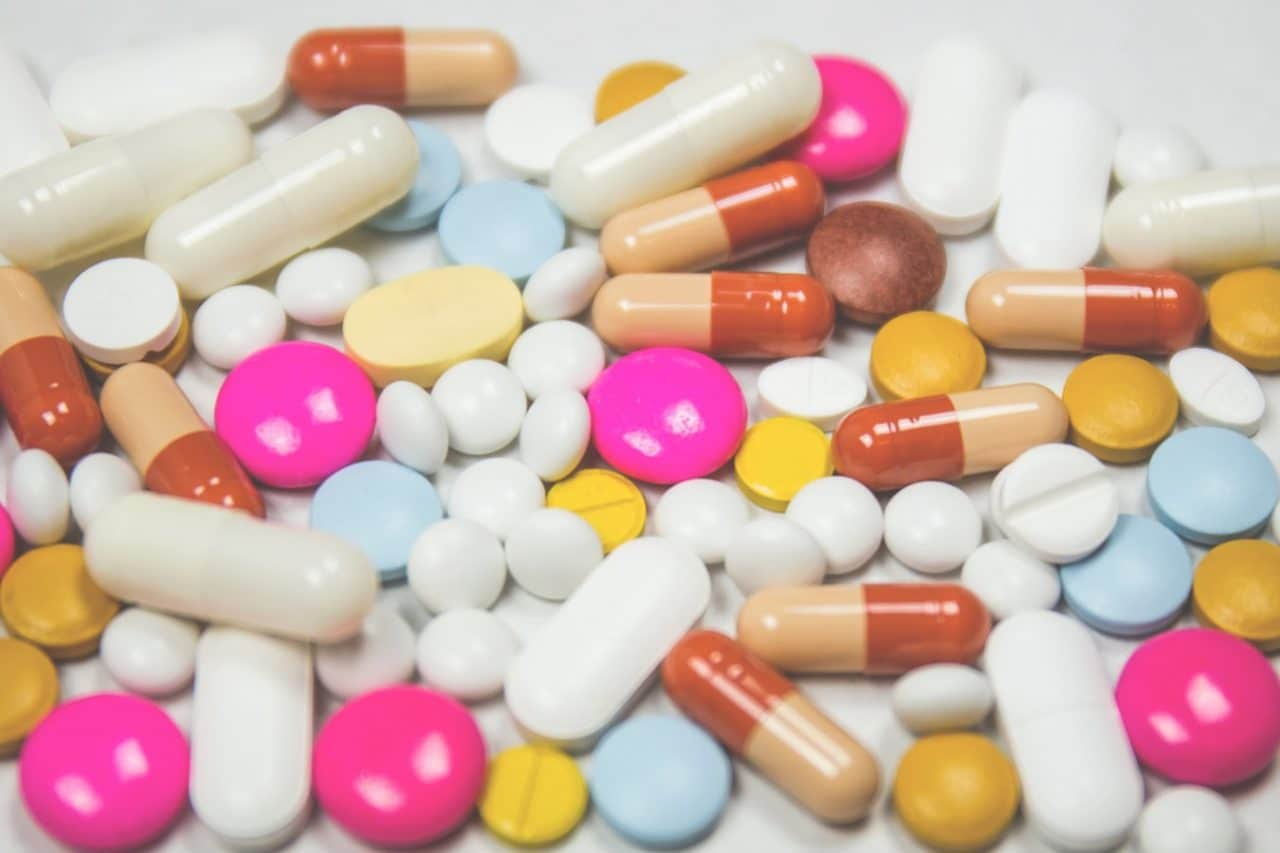Govt launches pharma manufacturing schemes; fruits to be visible in next two years

KV Prasad Jun 13, 2022, 06:35 AM IST (Published)
 Listen to the Article (6 Minutes)
Listen to the Article (6 Minutes)
Summary
The central government on Monday launched four schemes of Department of Pharmaceuticals for promotion of domestic manufacturing of bulk drugs and medical devices parks in the country.
The central government on Monday launched four schemes of Department of Pharmaceuticals for promotion of domestic manufacturing of bulk drugs and medical devices parks in the country.
Minister for Chemicals and Fertilizers DV Sadananda Gowda said that the move is in line with the vision of Prime Minister Narendra Modi’s call for making India AtmaNirbhar in pharma sector.
The government had approved four schemes, two each for Bulk Drugs and Medical Devices parks, in March.
Earlier, on July 21, the government had notified schemes to boost pharmaceutical manufacturing in the country.
Gowda said that both the industry and the States have started showing interest to come forward and participate in these schemes.
“India is often referred to as ‘the pharmacy of the world’ and this has been proved true especially in the ongoing Covid-19 pandemic when India continued to export critical life-saving medicines to needy countries even during the countrywide lockdown.
However, despite these achievements, it is a matter of concern that our country is critically dependent on imports for basic raw materials, viz. Bulk Drugs (Key Starting Materials (KSMs)/ Drug Intermediates (DIs) and Active Pharmaceutical Ingredients (APIs)) that are used to produce some of the essential medicines. Similarly, in the medical devices sector, our country is dependent on imports for 86 percent of its requirements of medical devices,” Gowda said.
Talking to CNBC-TV18, Gowda said that it was too early to judge how soon India would be able to reduce its import dependence completely.
However, adding to this, Secretary, Department of Pharmaceuticals, PD Vaghela said, “API manufacturing requires a gestation period of 2 years so we expect that within the next two years these manufacturing facilities will be up and running. Some of the chemical-based API manufacturing can begin even before two years; we are pushing for that.”
MoS (i/c) for Shipping and MoS for Chemicals & Fertilizers Mansukh Mandavia also said that the announcement of schemes was an important initiative towards further developing Indian pharmaceutical capacities.
“The Production Linked Incentive (PLI) schemes for promoting domestic manufacturing of KSMs, DIs and APIs and medical devices will go a long way including to boost domestic manufacturing of 53 bulk drugs, on which India is critically dependent on imports. The list of 41 products contained in the scheme guidelines will enable domestic production of 53 bulk drugs. Financial incentives will be given to a maximum of 136 manufacturers selected under the scheme as a fixed percentage of their domestic sales of these 41 products manufactured locally with required level of domestic value addition,” Mandaviya said.
According to the contours of the scheme, the incentives would be subject to annual ceilings communicated in the approval letter. The incentives would be given for a period of 6 years. In the case of fermentation-based products, the rate of incentive is 20 percent for the first four years, 15 percent for the fifth year and 5 percent for the sixth year.
In the case of chemically synthesized products, the rate of incentive is 10 percent for all six years.
The selected manufacturers shall have to complete committed investment above a threshold investment mandated for each product and achieve a prescribed minimum installed capacity before they are eligible to receive incentives.
The threshold investment is Rs 400 crore for four fermentation-based products and Rs 50 crore for ten fermentation-based products. Similarly, threshold investment is Rs 50 crore for four chemically synthesized products, and Rs 20 crore for 23 chemically synthesized products.
The minimum installed capacity to be achieved for each of the 41 products is prescribed in the guidelines. The incentives for fermentation-based products would be available from FY 2023-24 i.e. after a two year gestation period during which the selected applicant has to complete the committed investment and install the committed capacity.
For chemically synthesized products the incentives would be available from FY 2022-23 i.e. after a gestation period of one year during which the selected applicant has to make the committed investment and install the committed capacity.
Any company, partnership firm, proprietorship firm or an LLP registered in India and possessing a minimum net worth (including group companies) of 30 percent of the proposed investment is eligible to apply for incentives under the scheme. An applicant can apply for any number of products.
The applicants will be selected on the basis of transparent composite evaluation criteria which include the annual production capacity committed by the applicant and the sale price of the product quoted by the applicant. Applicants quoting low sale price and higher production capacity will get higher marks in the evaluation.
Amitabh Kant, CEO Niti Aayog also highlighted that India produces a huge number of Generic medicines as well as more than 500 API, still, it has to import a large quantity of API. He said prime mnister wants to reduce dependency on imports.
Secretary pharmaceuticals P D Vaghela said that the schemes are expected to make India not only self-reliant but also capable of catering to the global demand for the selected bulk drugs and medical devices.
“This is a golden opportunity for the investors since incentivization to industry and world-class infrastructure support simultaneously will help in bringing down the cost of production significantly. These schemes along with the liberal FDI policy in these sectors and an effective corporate tax rate of about 17 percent (including surcharge and cess) will give a competitive edge to India in the selected products vis-à-vis other economies,” Vaghela added.
The guidelines are available on the website of the Department of Pharmaceuticals.
Salient features of the four schemes are:
The scheme is open for applications for a period of 120 days from the date of issuance of guidelines and the approval will be given to the selected applicants within 90 days from the closure of the application window. Applications will be received only through an online portal. The total financial outlay of the scheme is Rs 6,940 crore.
Scheme for promotion of Bulk Drug Parks: The scheme envisages creation of 3 bulk drug parks in the country. The grant-in-aid will be 90 percent of the project cost in case of North-East and hilly States and 70 percent in the case of other States. Maximum grant-in-aid for one bulk drug park is limited to Rs 1000 crore.
States will be selected through a challenge method. The States interested in setting up the parks will have to ensure assured 24*7 supply of electricity and water to the bulk drug units located in the park and offer competitive land lease rates to bulk drug units in the park. The location of the proposed park from environmental angle and logistics angle would be taken into account while selecting the States.
The ease of doing business ranking of the state, incentive policies of the State applicable to the bulk drug industry, availability of technical manpower in the state, availability of pharmaceutical/chemical clusters in the state will also be factored in while selecting the States.
The interested States will be scored and ranked on evaluation criteria, given in the guidelines, which captures the above parameters. The States getting top 3 ranks will be selected. The States have to submit their proposal within 60 days of the date of issuance of the guidelines. Selection will be done and in-principle approval will be given to three selected States within 30 days of last date of submission of proposals.
Thereafter, the 3 selected States will have to submit a Detailed Project Report (DPR) within 180 days of the in-principle approval based on which final approval will be given. The grant-in-aid will be released in four installments. The first three installments will be 30 percent each and the last will be 10 percent of the grant-in-aid.
The selected States will have to complete the parks per the approved DPR within two years of the date of release of the first installment of the grant-in-aid. It is envisaged to have a single-window system in these parks for all regulatory approvals under one roof. The creation of a center of excellence is also envisaged to enable an ecosystem for Research and Development.
The total financial outlay of the scheme is Rs 3,000 crore.
Production Linked Incentive (PLI) scheme for promoting domestic manufacturing of Medical Devices: The scheme intends to boost domestic manufacturing of medical devices in four target segments by giving financial incentives on sales to a maximum number of 28 selected applicants for a period of 5 years. A financial incentive will be given at a rate of 5 percent of the sales of domestically manufactured medical devices. The incentives would be subject to annual ceilings communicated in the approval letter the incentives would be available from FY 2021-22.
Four target segments are:
Cancer care / Radiotherapy medical devices
Radiology & Imaging medical devices (both ionizing & non-ionizing radiation products) and Nuclear Imaging devices Anesthetics& Cardio-Respiratory medical devices including catheters of Cardio Respiratory Category & Renal Care medical devices
AII Implants including implantable electronic devices
Any company registered in India and possessing a minimum net worth ( including group companies) of Rs 18 crore (30 percent of threshold investment of first year) is eligible to apply for incentives under the scheme. The applicant can apply for multiple products within one target segment as well as multiple target segments. The selected applicants shall have to complete a threshold investment prescribed for each year and achieve a minimum prescribed sale for that year for them to be eligible to receive incentives.
The application window is 120 days from the date of issuance of guidelines and the approval thereafter to the selected applicants will be accorded within 60 days from the date of closure of the application window. The applications will be received only through an online portal. The total financial outlay of the scheme is Rs 3,420 crore.

Elon Musk forms several ‘X Holdings’ companies to fund potential Twitter buyout
3 Mins Read
Thursday’s filing dispelled some doubts, though Musk still has work to do. He and his advisers will spend the coming days vetting potential investors for the equity portion of his offer, according to people familiar with the matter

KV Prasad Journo follow politics, process in Parliament and US Congress. Former Congressional APSA-Fulbright Fellow










 Listen to the Article
Listen to the Article  Daily Newsletter
Daily Newsletter






